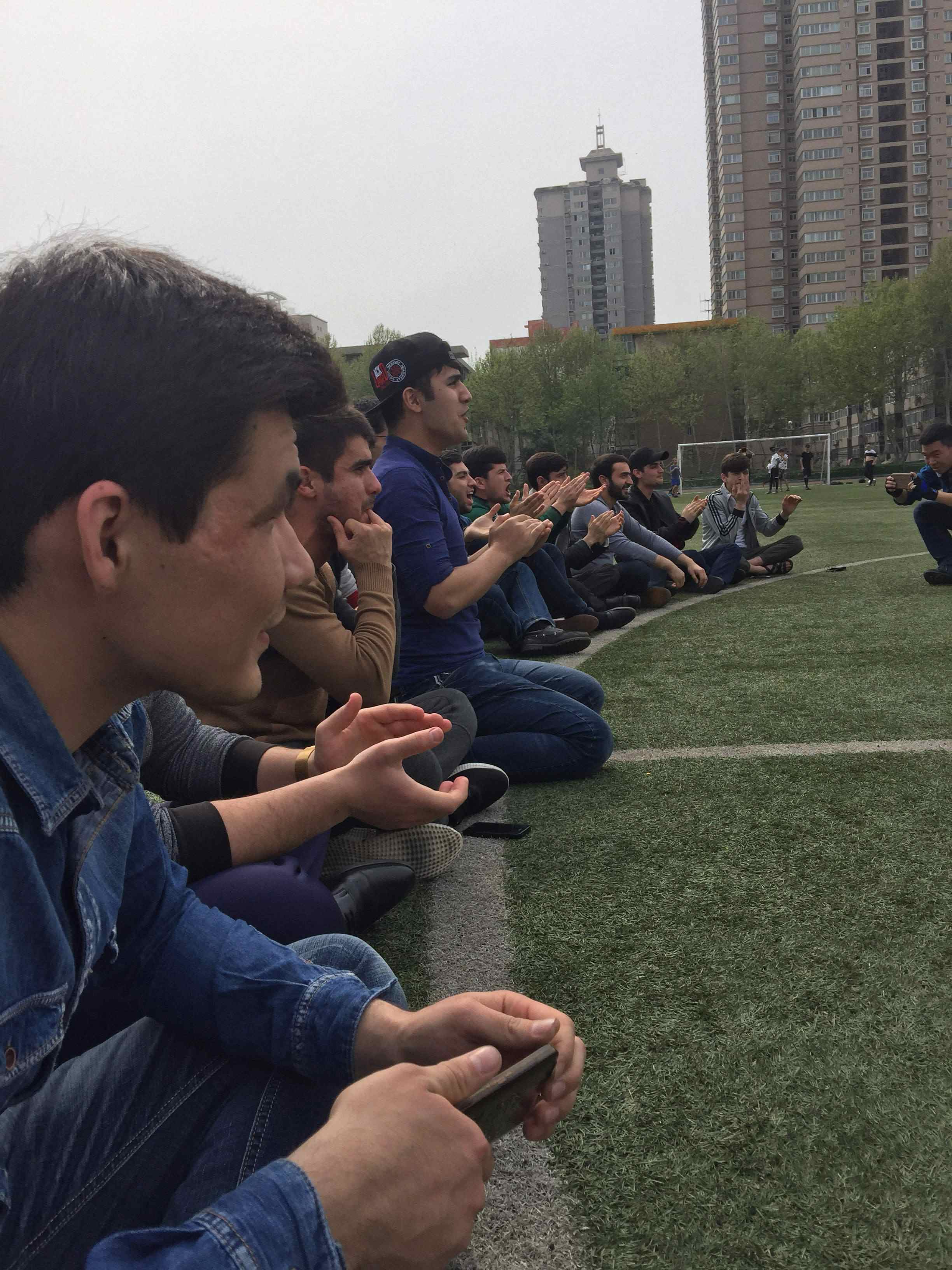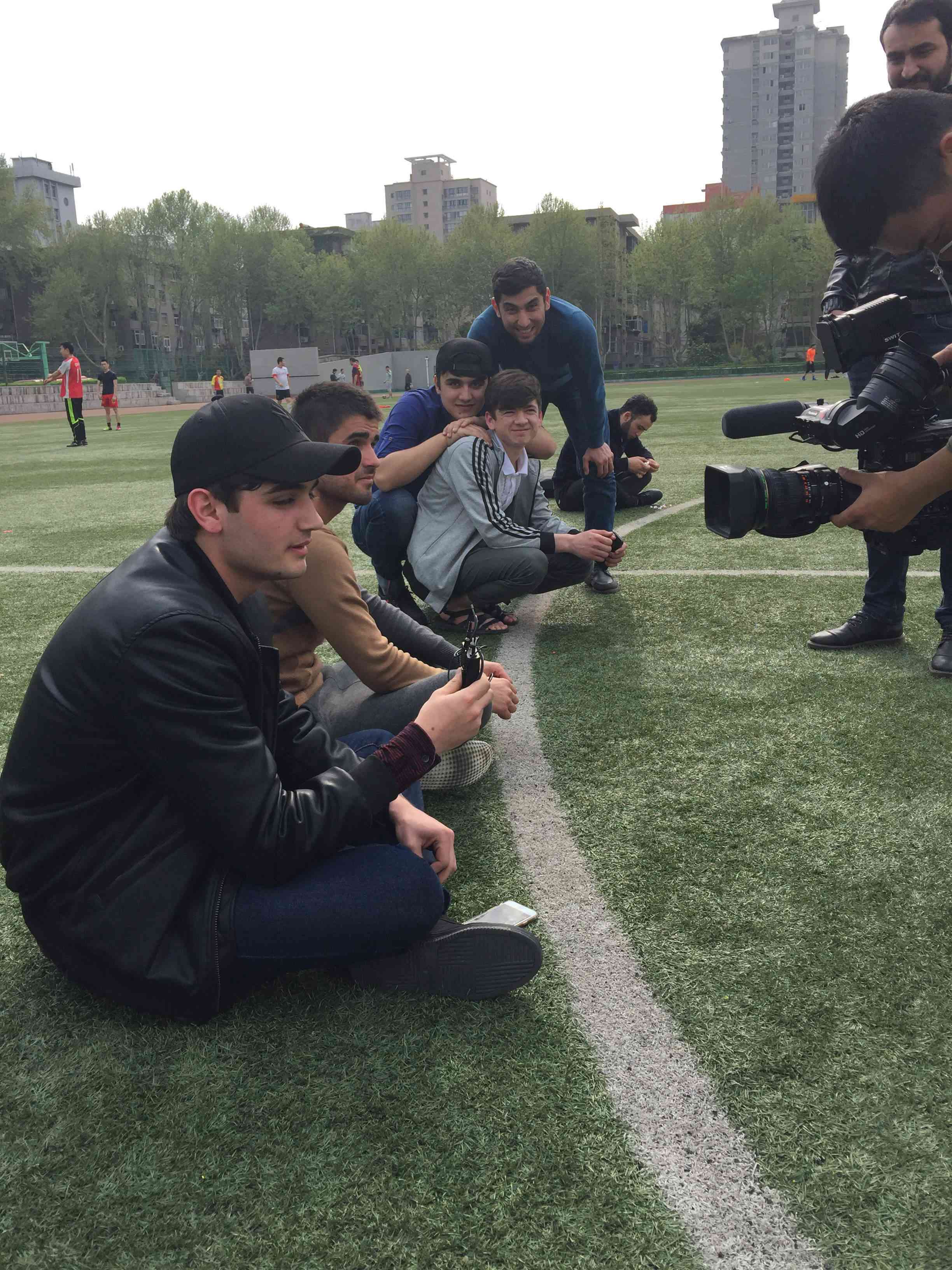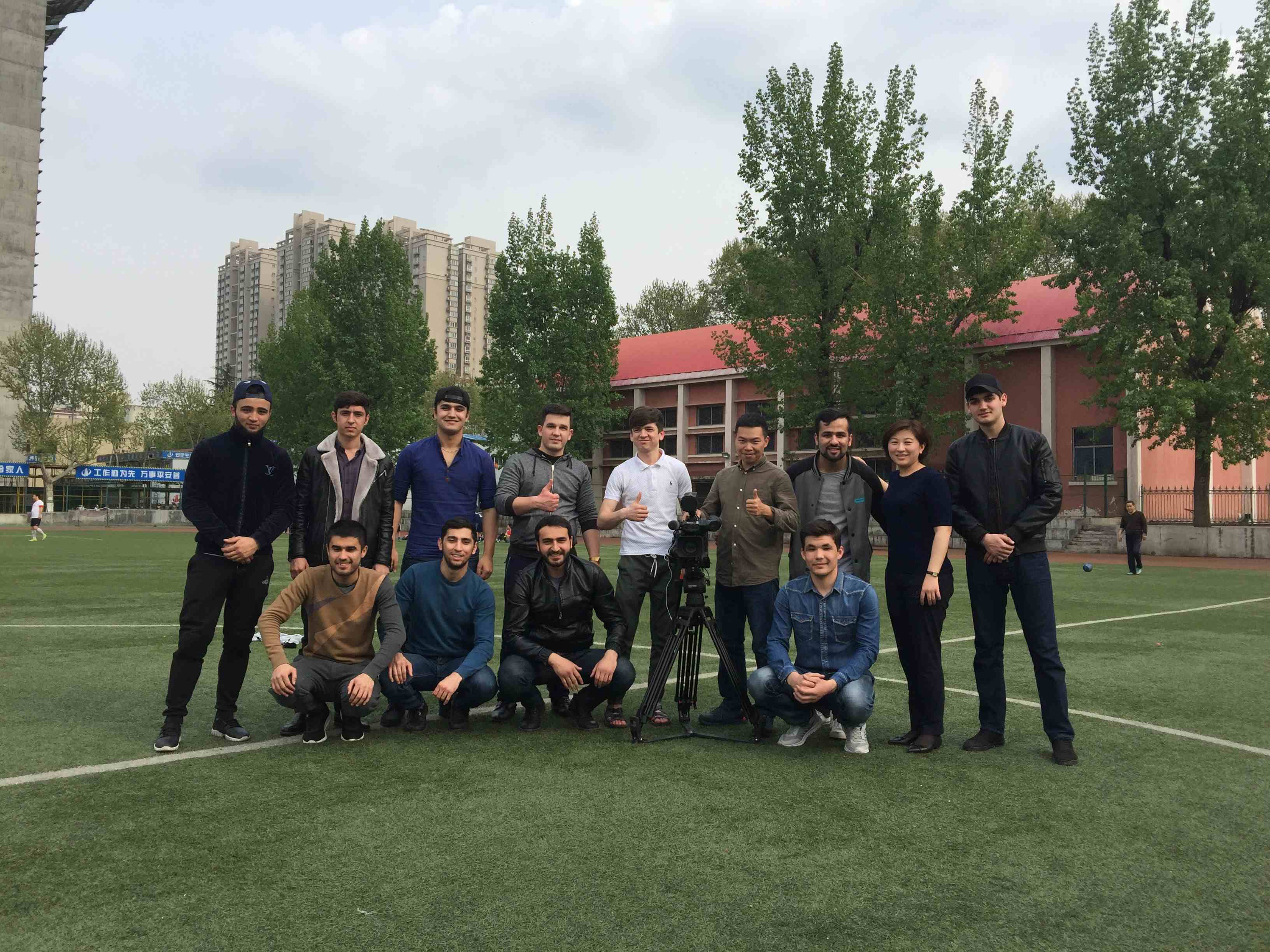By CGTN's Liu Yang
The Belt and Road Initiative has helped make China a more popular destination for international students, particularly those from Central Asia. Many are now proficient in Chinese language, and are serving as informal ambassadors for China to the rest of the world.
At the Xi'an International Studies University, in the city where the ancient Silk Road began, freestyle wrestling is becoming a popular pastime, thanks to Central Asian students who grew up with the sport. For these students, adjusting to life in China, much like wrestling, is all about being quick on one’s feet.

CGTN Photo
Azizov Abdurakhmon, a student there, said it was hard to adapt to life in China at the beginning. "When I first arrived in China, I didn't know much about Chinese culture. No friends. People and languages here are different. My mom told me 'you are young. You should work hard because now is the best time to learn,'" he told CGTN.
The 21- year-old has been in China for a few years, and is now fluent in five languages. His thirst for knowledge about Chinese politics, history, and culture grows by the day, and he hopes to use what he is learning in China to start a trading business in his home country Tajikistan.
In recent years, students from countries on the Belt and Route route have been coming in droves to China, helping strengthen cross-country ties. In 2015, nearly 400,000 foreign students came to China for schooling, up 5.5 percent year-on-year.

CGTN Photo
Students from overseas account for one tenth of all students at Xi'an International. About 200 of them are from Central Asia. The Vice President of the University, Jiang Yajun, said the school is cultivating students with global perspectives and excellent language skills so they can quickly adapt to the demands of a more integrated world, as the Belt and Road Initiative envisions.
Jiang stressed that only communication brings understanding.
Xi'an International is responsible for the Confucius Institutes in Kazakhstan, Argentina, and the US, while the school is home to the Research Institute of Poland, Kazakhstan, and the Arabic Language and Culture Research Center. Many students at the university are on scholarships offered by the Chinese government, Confucius Institutes, and various embassies.

CGTN Photo
Wu Yongzhi, the Dean of the School of Central Asia at Xi'an International Studies University, noted that “studying Chinese is easier than immersing into Chinese culture. Some students previously didn't accept Confucianism. If we provide them a learning environment that can give them deeper understanding of Confucianism, Buddhism, Chinese culture, philosophy, history, it’s a more effective way of promoting communication”.
In 2016, about 50,000 foreign students in China received scholarships offered by the Chinese government, 60 percent of whom are from Belt and Road countries. People from Central Asia have been traveling to China for thousands of years, and students from the region are continuing and expanding upon that tradition, one wrestling tackle at a time.
909km










